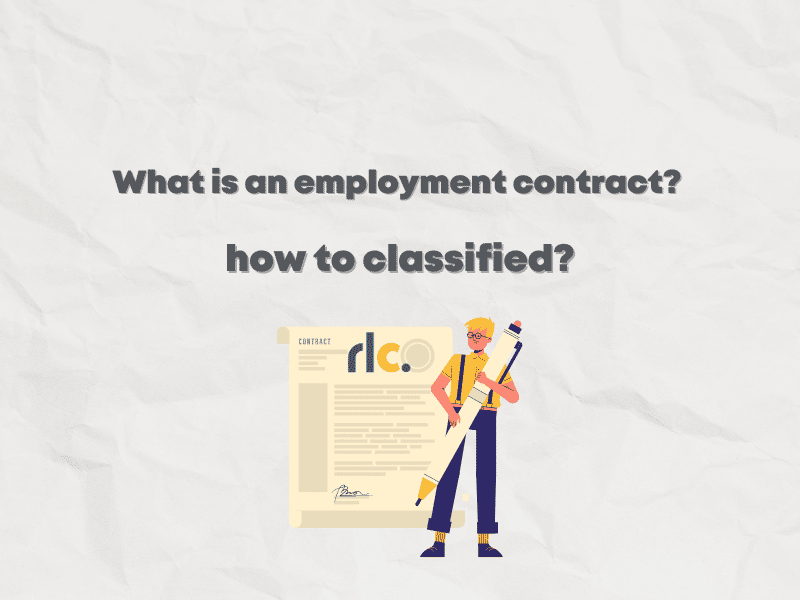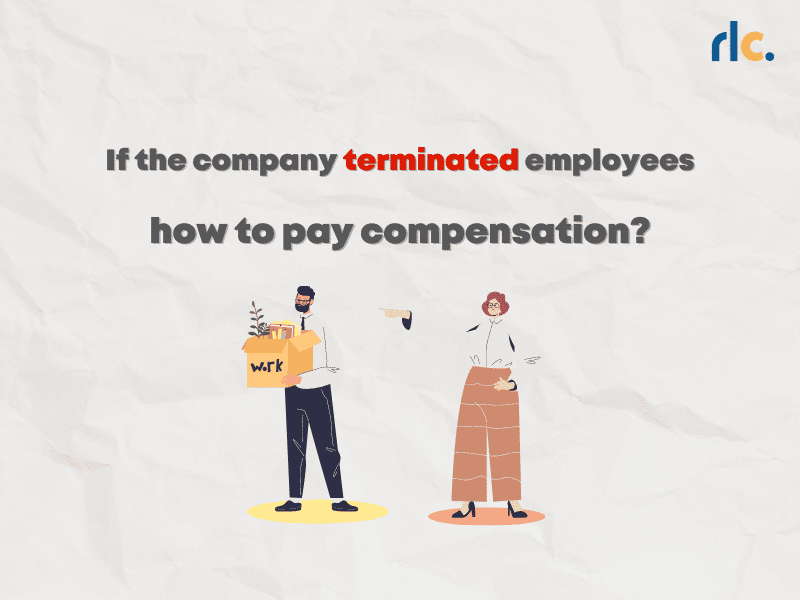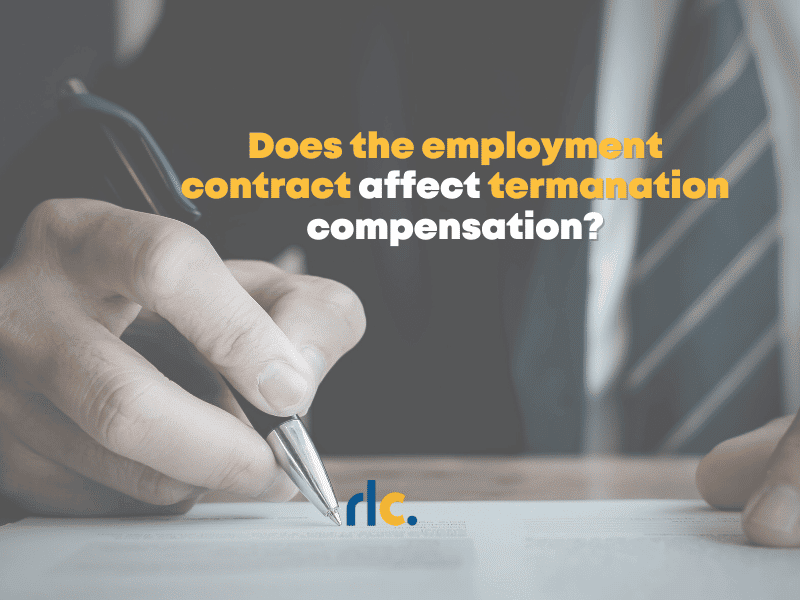What kind of employment contract, termination cases, and how to pay compensation?
It has been for a while, there are often a lot of severance issues between companies and employees. Because many companies may never think about this cost. therefore, did not reserve the budget in this section just in case along with the COVID-19 situation causing employers to face financial problems This has caused many companies to avoid paying compensation in the event of termination of employment. And it became a lawsuit back and forth between employees and employers. Today, RLC Outsourcing has gathered tips on how to pay compensation according to the type of employment contract for readers. In order for employers to understand labour laws and treat employees properly which in the end will have a positive effect on both the employee and the employers

What is an employment contract and how to classified?
What is an employment contract? According to the Labor Protection Act, B.E. 2541, Section 5 states that In employment between the “employer” and the “employee”, it is agreed that The employee agrees to work or use labor for the employer. which the employer will pay compensation regardless of whether it was agreed through verbal Written or implied books Just as this is considered an employment contract has already occurred.
Nowadays, most organizations or companies Employment contracts are usually in writing. so that if there is a problem between the employer and the employee will have evidence to clarify the law And will be divided into two main types, which are employee permanent contracts and employee contract with an end date. in which the employment contract in both cases appears in The Labor Protection Act, B.E. 2541, as amended, B.E. 2551, Section 17 stipulates the case of termination of employment contract and advance notice.
What is an employee permanent contract?
To make it easy to understand, that’s a general employment contract that full-time employees sign. Employers can extend or shorten the working hours of employees. This type of contract also has a probation period.

If the company terminated employees, how to pay compensation?
The compensation varies according to the nature of the employment contract as follows:
1.Permanent Contract
When the company or organization terminates its employment, the following compensation shall be paid:
|
120 or more days of service but less than 1 year
|
| 1-3 years |
| 3-6 years |
| 6-10 years |
| 10-20 years |
|
Pay at least the last rate of wages for 30 days
|
|
Pay at least the last rate of wages for 90 days
|
|
Pay at least the last rate of wages for 180 days
|
|
Pay at least the last rate of wages for 240 days
|
|
Pay at least the last rate of wages for 300 days
|
from the above table you will notice that Compensation is required by law when employees work more than 120 days, but if employees work less than 120 days, will the company have to pay compensation?
The law does not clearly state that there must be a probation period (90-120 days, depending on the company), but only states that If the employee has worked for more than 120 consecutive days, the company must pay the employee’s remuneration.
According to the Labor Protection Act, Section 17, which states about the termination of the labor contract. In the case of permanent employment There is no clear termination date of the employment contract, therefore, it means that the employment contract will end when the company or employee terminates the contract. By giving advance notice in writing or verbally to the other party for 1 month before the salary will be issued in the next round.
However, without notice prior The law states Compensation is required. which is the amount equal to the latest salary.
But if the company informs 1 month in advance that it has not passed the probationary and to continue working until the end of the contract or 120 days, the employee will be terminated. Due to prior notice, the Company does not have to pay any compensation to employees.
2.Employee contract with an end date
Many people misunderstand that contract employees cannot claim compensation when they are terminated, because they are not regular employees. In fact, contract employees can claim compensation like regular employees when they are terminated.
When the company or organization terminates the employment after the employee has worked for a period of time, but the employment contract has not been completed. The Company shall pay the employee compensation equivalent to the number of remaining months x salary, for example:
Mr. A signed a 1-year contract with RLC outsourcing company, with a salary of 15000 THB. Then the company is obliged to lay off Mr. A in the 6th month, which means that the company must pay Mr. A a certain amount of compensation.
= (6) remaining months x (15,000) salary
= 90,000 THB
But if the contract renews in the 2nd, 3rd, 4th year, then the company has a desire to terminate the employee. Must pay compensation according to the length of service as a permanent contract because according to the law, when the contract is renewed from the second round, the contract will become a permanent contract. The compensation rate will be paid as in the table above.
According to Section 9 of the Labor Protection Act, the company must pay compensation to employees on the date of termination of employment and cannot pay in installments. Otherwise, interest will have to be paid on the accrued compensation of 15 percent per year, but many companies may face budget problems in this situation. Therefore, it has been suggested whether employers can pay severance payments in installments or not.
From here, employers can pay in installments if the employee agrees. Because agreeing to pay installments is not an agreement not to pay. And if the payment is agreed upon and the payment is not paid as agreed, the employee has the right to sue for such compensation. (Referring to Supreme Court Judgment No. 15780/2555)
Summary
The law requires companies to pay employees compensation upon termination. If the payment is overdue, interest will be charged at 15 percent per annum. In both fixed-term employment contracts (eg one-year contract) and permanent contracts (eg full-time employment contracts), there is a rate of payment. different compensation Depends on the length of the contract, In order not to cause the company to have problems later therefore should comply with the law or if you want RLC Outsourcing to help take care of HR work, you can contact us. We are happy to give advice that is suitable for your organization.

SEO Specialist and Client Success at RLC Outsourcing

